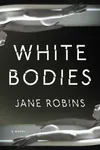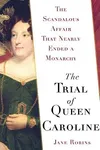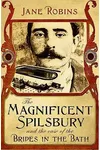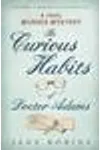Picture a British storyteller who spins chilling true crime tales and psychological thrillers with a historian’s precision—meet Jane Robins! Once a globe-trotting journalist, she now crafts gripping narratives that pull readers into the shadowy corners of history and human nature. From the forensic breakthroughs of The Magnificent Spilsbury to the obsessive twists of White Bodies, Robins’s work blends meticulous research with page-turning suspense.
With a knack for uncovering the drama of real-life trials and the complexities of women’s lives, Robins has carved a unique niche in historical crime and fiction. Her stories don’t just entertain—they illuminate the past, making her a must-read for fans of true crime and psychological depth. Ready to dive into her world?
The Making of Jane Robins
Born in Britain, Jane Robins kicked off her career as a journalist, reporting from India and Southeast Asia for The Economist and later working with the BBC and The Independent on Sunday. Her time as a foreign correspondent and media editor sharpened her eye for detail and storytelling, skills she’d later pour into her books. Fascinated by history and forensics, Robins transitioned from newsrooms to archives, driven by a passion for unearthing forgotten stories and giving voice to the overlooked, especially women.
Jane Robins’s Unforgettable Stories
Robins’s nonfiction books are masterclasses in historical crime, blending rigorous research with narrative flair. Rebel Queen (2006) dives into the 1820 trial of Queen Caroline, a scandal that nearly toppled the British monarchy, capturing the era’s political turmoil. The Magnificent Spilsbury and the Case of the Brides in the Bath (2010) chronicles forensic pioneer Bernard Spilsbury’s role in solving a notorious murder case, while spotlighting the precarious lives of women in pre-WWI England. The Curious Habits of Dr. Adams (2013) exposes a morphine-wielding doctor’s crimes in 1950s Eastbourne, painting a vivid portrait of mid-century society.
In 2017, Robins ventured into fiction with White Bodies, a psychological thriller that echoes Strangers on a Train. The story follows Callie, who suspects her twin sister’s husband is dangerous, leading to a spiral of obsession and murder. Critics praised its “deliciously creepy” vibe, and it marked Robins as a versatile voice in suspense. Her style—whether nonfiction or fiction—is meticulous yet accessible, weaving historical or psychological insights into propulsive plots.
Robins also co-wrote People Like Us, a play staged in London in 2018, showing her range across mediums. Her work consistently explores themes of justice, power, and the hidden struggles of women, making her stories resonate across time.
Why Jane Robins Matters
Jane Robins’s impact lies in her ability to breathe life into history’s margins. Her historical crime books don’t just recount trials—they reveal the social forces shaping women’s lives, from marriage pressures to forensic advancements that gave victims a voice. White Bodies brought her forensic eye to modern fiction, proving her storytelling transcends genres. As a Royal Literary Fund Fellow, she’s also mentored aspiring writers, leaving a quiet but lasting mark on the literary world.
Her blend of scholarship and suspense has earned her a dedicated following, with readers drawn to her ability to make the past feel urgent and personal. Robins’s work reminds us that history’s darkest corners still have lessons for today, especially about resilience and justice.
- Born: United Kingdom
- Key Works: Rebel Queen, The Magnificent Spilsbury, The Curious Habits of Dr. Adams, White Bodies
- Notable Role: Fellow at the Royal Literary Fund
Snag White Bodies or The Magnificent Spilsbury and dive into Jane Robins’s thrilling world of crime, history, and human nature!



